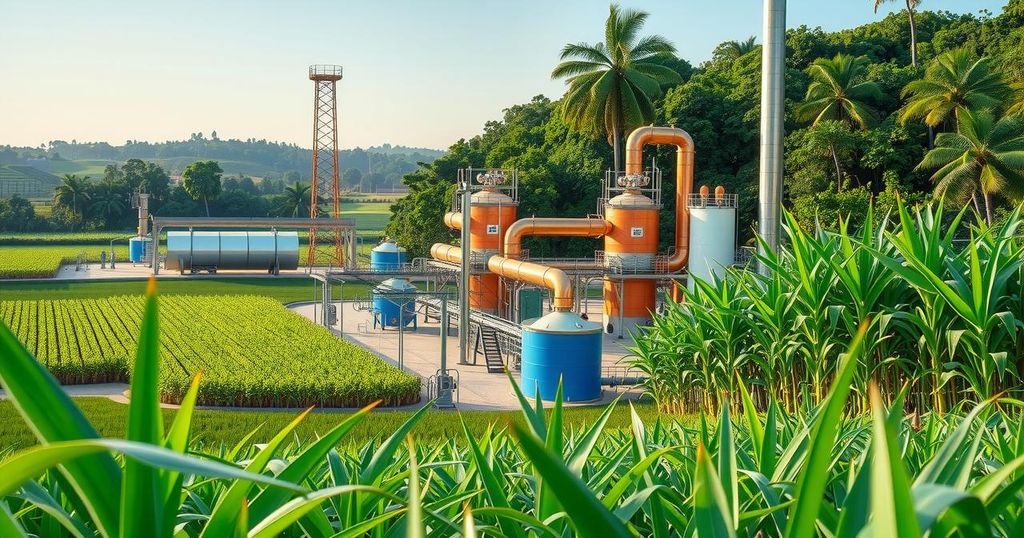Philippines Ethanol Policy Revisions Could Enhance Molasses Production Capacity
The Philippines is revising its ethanol policy to boost molasses ethanol capacity. Growth Energy is advocating for changes to proposed regulations affecting global shipping. The U.S. Grains Council discussed clean cooking benefits in Kenya, while the U.S. EPA reported a drop in RIN generation. Brazil is testing an E30 fuel blend, and a North American SAF Conference is planned for September 2025 to explore aviation fuel decarbonization.
The Philippines is contemplating reforms in its ethanol policy that could significantly enhance the production capacity of molasses-derived ethanol. This amendment aims to capitalize on the country’s existing molasses resources, thereby fostering an increase in the biofuel segment, which is integral to reducing carbon emissions and promoting sustainability in the region.
In related news, Growth Energy has submitted recommendations to the U.S. Trade Representative, advocating for amendments to recently proposed regulations. These new rules intend to address China’s influence in global shipping, highlighting the ongoing challenges faced by American biofuel industries.
Moreover, the U.S. Grains Council hosted a symposium on clean cooking in Nairobi, Kenya, engaging local leaders and policymakers regarding the advantages of biofuels for both the environment and public health. This initiative underscores the global movement towards cleaner cooking alternatives that can alleviate health issues associated with traditional fuels.
According to recent data from the U.S. Environmental Protection Agency (EPA), the generation of Renewable Identification Numbers (RINs) under the Renewable Fuel Standard (RFS) saw a significant decline. In February, approximately 1.52 billion RINs were produced, a decrease of over 25% compared to the same month last year.
Furthermore, the EPA disclosed the filing of four new small refinery exemption (SRE) petitions under the RFS, bringing the total number of pending petitions to 156. This situation reflects ongoing tensions within the biofuel sector as smaller refineries seek regulatory relief.
In Brazil, advancements in fuel blending were announced by the Ministry of Mines and Energy. Tests conducted by the Mauá Institute of Technology have confirmed the viability of transitioning to an E30 fuel blend, an increase from the current E27 blend, which would support Brazil’s biofuel production goals.
Lastly, the North American Sustainable Aviation Fuel (SAF) Conference & Expo is set to occur from September 22 to 24, 2025, at the Minneapolis Convention Center. This event, organized by SAF Magazine and CAAFI, will delve into strategies for decarbonizing aviation fuel and forthcoming opportunities in the sector, showcasing innovations and solutions pertinent to industry stakeholders.
The potential amendment of the Philippines’ ethanol policy may significantly increase molasses ethanol production capacities, thereby advancing sustainability goals. Concurrently, developments in the U.S. and Brazil highlight an international trend towards biofuel enhancement. Furthermore, the upcoming SAF Conference promises to address critical challenges in the aviation sector, pointing towards a collective movement toward cleaner fuels across various industries.
Original Source: www.ethanolproducer.com




Post Comment